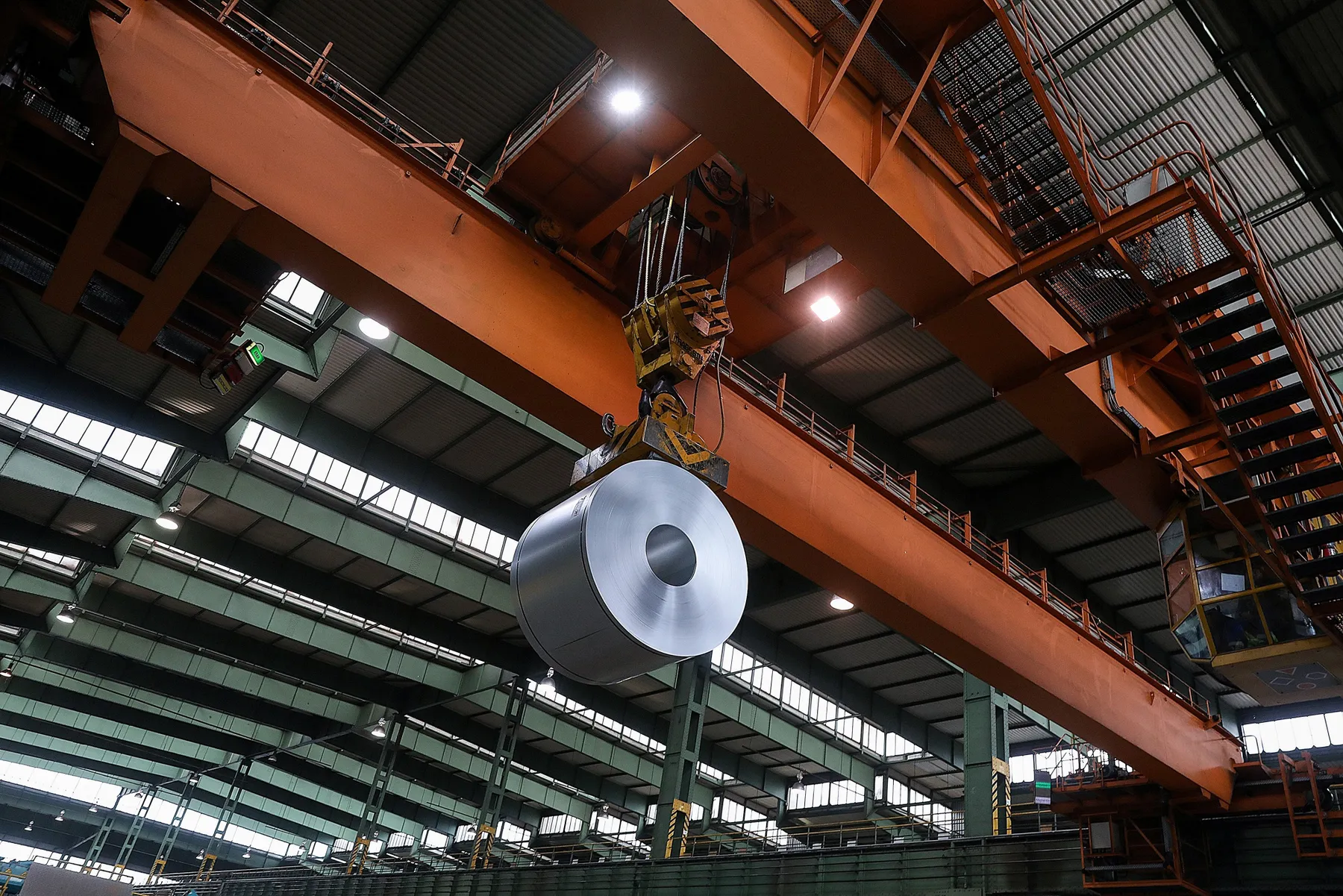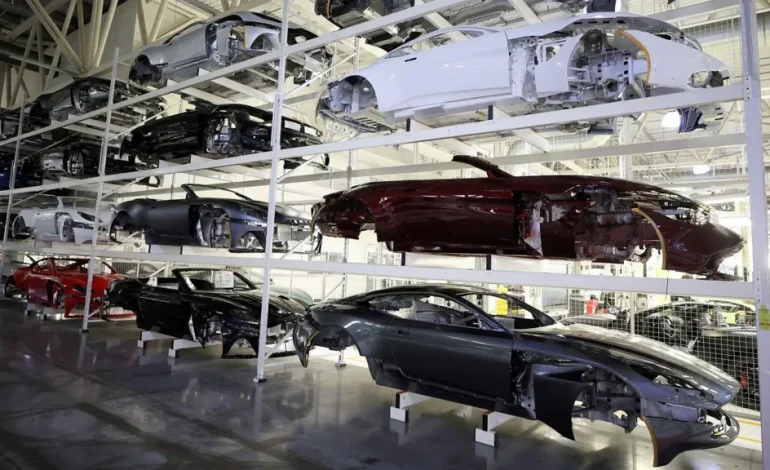UK car and commercial vehicle production fell to its lowest May level since 1949, with output dropping nearly a third year-over-year, according to data released Friday by the Society of Motor Manufacturers and Traders (SMMT).
Excluding the COVID-impacted year of 2020, the production total of 49,810 units represents a 32.8% decline and a historic low for the month.
The steep decline reflects multiple pressures on the UK auto industry, including model changeovers, production restructuring, and the impact of US tariffs introduced earlier this year under President Donald Trump’s administration.
Exports to the United States—a key market for UK automakers—fell by 55.4% in May after the US imposed a 25% tariff on imported vehicles and car parts in March. As a result, luxury brands such as Jaguar Land Rover (JLR) and Aston Martin paused or reduced shipments to the US, disrupting production schedules and inventory planning.
The United States’ share of UK vehicle exports dropped significantly, falling from nearly 20% to just over 10% in one month. Shipments to the EU, another critical market, also declined by 22.5%.
In a move to ease trade tensions, President Trump in May signed an executive order lowering import duties to 10% on up to 100,000 British cars per year, a measure that will take effect by the end of June. This is expected to provide some relief to manufacturers like JLR, which previously exported close to that number annually.
In addition to trade concerns, the SMMT attributed part of the downturn to factory retooling for electric vehicle (EV) production. JLR, for instance, is transitioning Jaguar into an all-electric brand, while Nissan is preparing for the next-generation Leaf.
These transformations, though promising for the long term, have temporarily disrupted output. Despite the current challenges, the SMMT remains cautiously optimistic.
“While 2025 has proved to be an incredibly challenging year for UK automotive production, there is the beginning of some optimism for the future,” said Mike Hawes, chief executive of the SMMT.
He cited improved international relations and targeted industrial strategies, including support for energy cost reductions and £2.5 billion in R&D investment, as potential catalysts for recovery.
From January through May, UK vehicle production is down 12.9% compared to the same period in 2024, with total output at 348,226 units—a level not seen since 1953. However, the recent trade agreement with the US and ongoing developments in EV manufacturing could mark a turning point.
The automotive sector remains a vital part of the UK’s export economy, with £9 billion in car exports to the US alone last year, accounting for over 27% of total vehicle exports. Industry leaders are hopeful that stabilizing trade relations and continued investment will help the sector regain momentum in the months ahead.










The latest news in your social feeds
Subscribe to our social media platforms to stay tuned